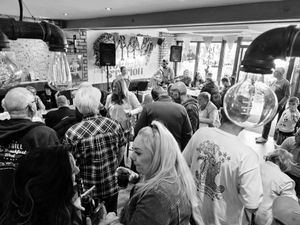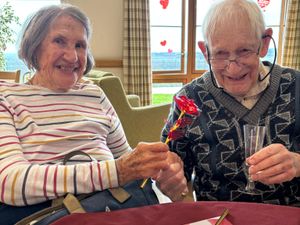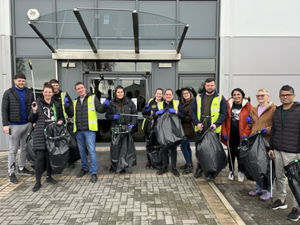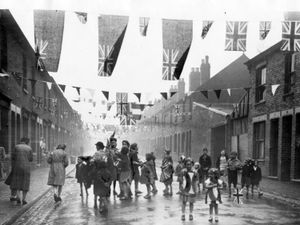Revealed: Most popular solution to tackle drink-driving according to West Midlands motorists
Tougher sentences are the most popular solution among motorists to tackle drink-driving, a survey suggests.
Watch more of our videos on ShotsTV.com
and on Freeview 262 or Freely 565
Drivers from the West Midlands polled for the RAC were asked to choose three out of eight options for curbing drink-driving, which contributed to the deaths of an estimated 300 people on Britain's roads in 2022.
Harsher punishments were selected by nearly two in five drivers questioned.
Reducing the legal alcohol limit to zero was the second most popular option, followed by giving the police new powers to immediately disqualify drink-drivers at the roadside.
Currently, only courts can impose driving bans, meaning after a drink-driver is caught they can continue to drive until their court appearance.
Motorists face a minimum disqualification period of 12 months if they are convicted of drink-driving.
Courts in the West Midlands, Shropshire and Staffordshire are kept busy with drink drivers who have been caught by police.
In one case this week, police revealed how they had made an arrest when a drunk driver was spotted driving around Lichfield in Staffordshire with their boot open. The man blew 52 in the breath test - the legal limit in the UK is 35.
In a case up before court in Shropshire, magistrates heard how Ian Bucknell, of Ludlow, was caught driving an Izuzu Rodeo Denver on the A465 Tenbury to Wooferton road at Tenbury Wells near the Shropshire/Worcestershire border on October 29 last year.
The 62-year-old was breath-tested and found to have 106 micrograms of alcohol per 100 millilitres of breath. The legal limit in England and Wales is 35mcg.
Bucknell pleaded guilty at Herefordshire Magistrates Court to driving a motor vehicle with alcohol above the limit and was disqualified from driving for 25 months as well as being ordered to do 130 hours of unpaid work.
Alcohol also plays a major part in tragedies in our roads. A drink driver who killed his friend in a Christmas Day crash in West Bromwich was jailed last month.
Nirvair Lall, was behind the wheel of a black Ford Fiesta when the fatal collision happened on December 25, 2022.
Lall, who had been drinking alcohol prior to the collision, lost control of the vehicle and crashed into a tree.
His friend, 25-year-old Inderjot Singh, who was the front seat passenger in the car, was declared dead at the scene.
CCTV footage from earlier on in the evening showed Lall and friends socialising and drinking inside a pub on Park Lane in Hockley, Birmingham, West Midlands Police said.
He was charged and then admitted to causing death by careless driving while unfit through drink.
He was jailed for four years and disqualified from driving for seven years at Wolverhampton Crown Court.
RAC road safety spokesman Rod Dennis said people wanted action to prevent further tragedies.
He said: "It's clear motorists want to see something done differently to tackle the scourge of drink-driving, which is still responsible for the loss of far too many lives every year.
"Shockingly, Government data shows we're back to a similar rate of fatalities caused by people drinking and driving as we were in the late 1980s, and that a significant number of drink-drive offences are committed by reoffenders.
"We hope the issue of drink-driving will be addressed in the Government's soon-to-be-published road safety strategy, as clamping down on it in the right way could save hundreds of lives every year."
Chief Constable Jo Shiner , the National Police Chiefs' Council lead for roads policing, said: "We see the damaging impact of drink and drug driving all too often, and every fatality or serious injury which happens as a consequence of this is completely avoidable."
Official figures obtained by the PA news agency in September showed 372 people had been caught drink-driving at least four times.
The drink-drive limit in England , Wales and Northern Ireland is 80mg of alcohol in 100ml of blood.
Nowhere else in Europe has a limit above 50mg/100ml.
The Scottish Government reduced its limit to that level in 2014.
A recently launched campaign by the Government's road safety organisation Think! urges young drivers to stick to zero-alcohol drinks before getting behind the wheel over the festive period, saying the risk wasn’t worth it.





